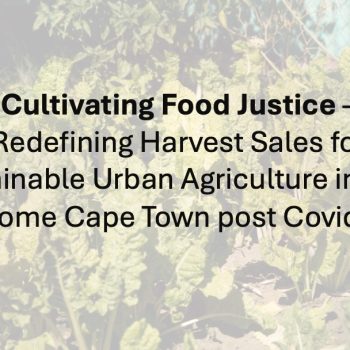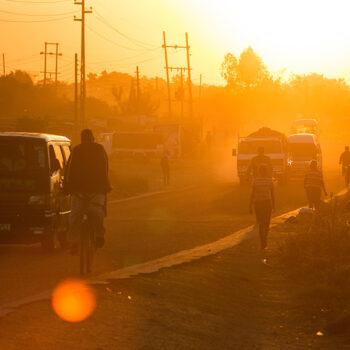Bio
Martin Magidi is a Postdoctoral Researcher for the Urban Governance Research Lab as part of the African Mayoral Leadership Initiative (AMALI). He first joined the African Centre for Cities as a Postdoctoral Researcher in June 2019 as part of the Robert Bosch Stiftung Pan-African College on Sustainable Cities programme – a research college made up of researchers from five African universities (University of Ghana, University of Nairobi, the United Nations University Institute for Natural Resources (Ghana), the University of Cape Town and Wits University). Magidi employs ethnographic methods to research and understand urban informality in its many manifestations (the informal economy, livelihoods, housing, employment and skills) and how it is governed in African cities.
Magidi holds a PhD in Development Studies from the University of KwaZulu-Natal’s (UKZN), School of Built Environment and Development (2019). His PhD study unpacked urban livelihoods after deindustrialisation in Zimbabwe – a research that cemented his interest in urban studies and development. Magidi also holds a Master of Development Studies, a Bachelor of Arts and a Diploma in Personnel Management – all from Zimbabwe. Prior to joining ACC, he worked in academic research, public health research, post-conflict environmental rehabilitation projects as well as high school teaching.
Publications
Journal Articles
- Magidi, M. (2022). Small towns as research sites: The impacts of deindustrialization on livelihoods in Norton, Zimbabwean. South African Geographical Journal, https://doi.org/10.1080/03736245.2022.2049633
- Magidi, M. and Hlungwani, P. (2022). Development or destruction? Impacts of mining on rural livelihoods and the environment at Connemara Mine, Zimbabwe. South African Geographical Journal, https://doi.org/10.1080/03736245.2022.2032294
- Magidi, M. (2021). The role of the informal economy in promoting urban sustainability: Evidence from a small Zimbabwean town. Development Southern Africa, https://doi.org/10.1080/0376835X.2021.1925088
- Magidi, M. and Mahiya I.T. (2021). Rethinking training: the role of the informal sector in skills acquisition and development in Zimbabwe, Development Southern Africa, 38:4, 509-523, https://doi.org/10.1080/0376835X.2020.1799759
- Hlungwani, P., Masuku, P. and Magidi, M. (2021). Mainstreaming youth policy in Zimbabwe: what role for rural youth?, Cogent Social Sciences, 7:1, https://doi.org/10.1080/23311886.2021.1893907
- Magidi, M. (accepted). More than just petty trading: How Zimbabwe’s informal economy transformed itself into a vibrant sector. Africanus: Journal of Development Studies.
Conference Presentations, Working Papers and Reports
- Magidi, M. and Jimu, T (2022). Urban livelihoods beyond industrial ruins: The birth of a night-time informal economy in Norton, Zimbabwe. Third International Conference on Night Studies, Lisbon, Portugal, 4-7 October 2022. https://repositorio.iscte-iul.pt/handle/10071/26179
- Magidi, M. (2022) Why Dunoon transformed from a planned into an auto-constructed informal township. Townships Studies Hybrid Conference, Johannesburg, South Africa, 10-11 Nov 2022.
- Magidi, M. (2022). Zimbabwe’s informal sector plays a key role in skills development but gets no recognition, The Conversation, 12 Sep 2022 https://theconversation.com/zimbabwes-informal-sector-plays-a-key-role-in-skills-development-but-gets-no-recognition-189178
- Magidi, M. (2021). How the informal economy solves some urban challenges in a Zimbabwean town, The Conversation, 28 0ct 2021 https://theconversation.com/how-the-informal-economy- solves-some-urban-challenges-in-a-zimbabwean-town-169951
- Hlungwani, P.M., Masuku, S. and Magidi, M. (2019). Mainstreaming of policies and institutions towards engendering a pro-youth, consensual and progressive empowerment policy in rural Zimbabwe. UCT Centre for Social Science Research Working Paper Number 443, http://www.cssr.uct.ac.za/cssr/pub/wp/443





